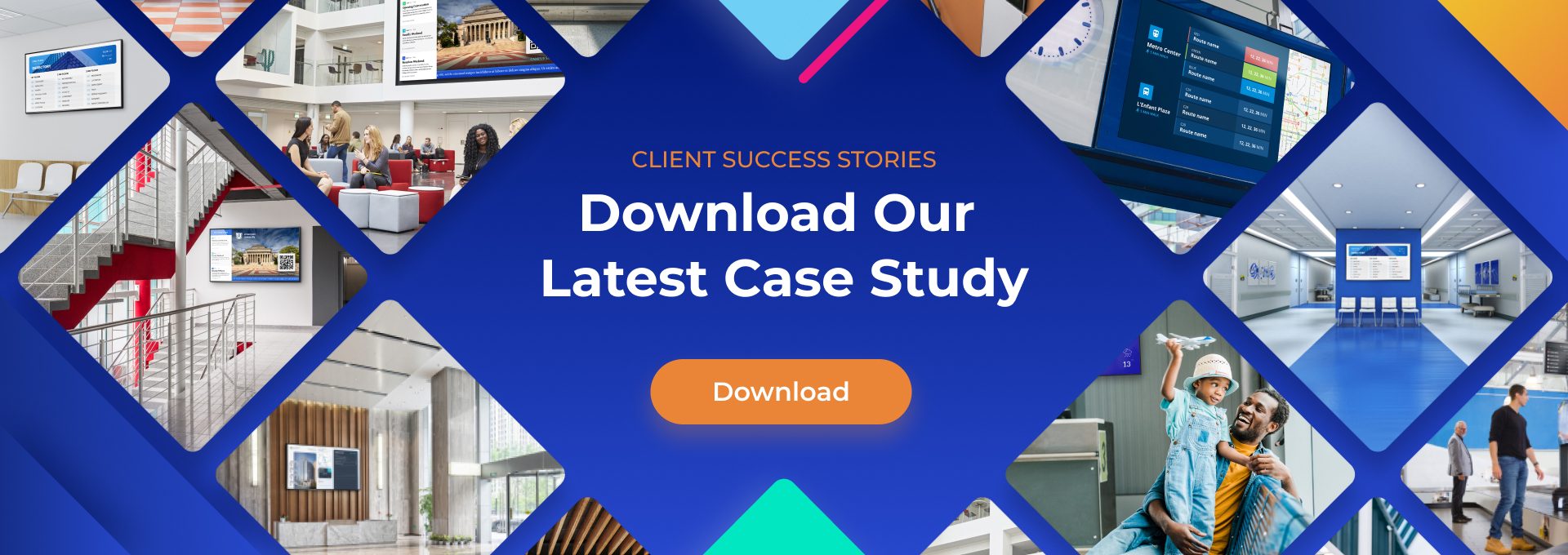8 Signs to Upgrade Your Digital Signage Hardware
In the current age of technological advancements, there’s no better way to keep up with the rest of the world than to have the latest technology. While the dizzying pace of technology can be challenging to keep up with, it helps to know when it’s time to upgrade. A report by a leading research and advisory company, Gartner, shows that businesses spent a whopping $4.2 billion on technology in 2021.
Undoubtedly, businesses see the need to invest in technology and to upgrade when it is due, and so should you. Needless to say, you need to provide your employees and colleagues with the best resources to upscale productivity. Make sure to keep your small business ahead of others by helping it run at its peak levels of competence. The best way to achieve this feat is through hardware upgrades.
Components such as RAM, graphic cards, processors, GPUs, and storage space or hard drives in the CPU should be upgraded to improve your PC’s functionality and overall performance. Also, you should consider upgrading the power supply and replacing aging hardware to make your computers look as good as new. So, how do you know when to upgrade the hardware in your computer?

1. Spending Too Much Money On Repairs
While repairing or maintaining your computer hardware is practical rather than purchasing a brand new computer, it is also wise to perform some upgrades. Remember that proper care of your devices can extend their lives and save you a lot of money in the process.
But repairing your computer hardware will, at long last, cost you a fortune more than just replacing it. For that reason, you must consider buying new hardware. Better still, take advantage of the existing hardware warranty to replace damaged components before the expiry of the warranty.
Hardware upgrades can bring a lot of benefits for your small business or organization in many ways. Some of the benefits may include:
- Enhance performance when you invest in brand-new computer hardware
- Increased security to prevent malware attacks that can lead to major downtime
- Reduced operating costs due to new features included in your operating system during the upgrade
- Improved management ultimately promotes remote management and monitoring to increase productivity.
2. Aging Hardware
Most business owners acquire new computers when their old devices are about five years old. This is a great idea, especially if you want to take your small business to the next level. However, you can save money on buying new systems by upgrading the existing parts of your computer.
Remember, as computers age, their internal parts, such as solid-state drives, motherboards, disk drives, or hard disks, age too. When they reach their end-of-life, these components start to malfunction or stop their operation abruptly. This is why it is prudent to consider a PC upgrade as the cost-effective solution to the aging components of your computer.
3. Failure to Update the Software
Failure to update the operating system and apps on your computer is another way to know when to upgrade hardware. OS such as Windows and applications are necessary for obtaining security fixes and new features.
Your PC updates should come in after every four years to promote efficiency in your workstation. Anything longer than that can be a risk factor to your computer’s operating system. In extreme cases, you may be compelled to upgrade several components simultaneously, which can be a costly affair.
4. Compatibility Issues
Your computer needs power and speed as well as time. It also needs to switch to a solid-state drive (OSSD) and an upgraded RAM to work efficiently. Compatibility problems arise when upgrading the CPU or the motherboard, leading to a sudden stop to the entire operation.
Once the computer hardware compatibility issue arises, it creates other problems, such as security threats to your computer framework. This is because the software needs compatibility, while the service pack requires regular upgrades. Unfortunately, a conflict between hardware and software can put your computer system at a security risk.
5. Running Legacy Systems
The term “legacy” systems refer to technology (like intel or cloud computing) and computers considered old-fashioned by IT experts like software developers. A good example is the computers with the Windows XP operating system or computer devices purchased before the release of Windows 7 OS.
Such computers are deemed to be legacy systems. While these systems will work almost as well as the latest versions, they will fail at one time. This imminent failure can result from a malware attack on legacy systems. You will likely experience higher repair costs when this breakdown happens than investing in new technology.
Besides higher replacement costs, many software developers and manufacturers will have shifted from legacy systems to newer systems. So, if an error occurs within your system, you will not get the necessary support from hardware manufacturers. As a result, your business will experience repair delays in addition to lost productivity.
The rule of thumb states that you should always keep up with the changing technology to stay ahead of the competition. One way to achieve this goal is to perform hardware upgrades on your computers constantly.
6. The Systems Don’t Meet the Minimum Requirements
Check the minimum requirements when installing new software or systems that require other hardware components. Almost all pieces of software indicate the minimum requirements for the software to work. If your hardware fails to meet these requirements, the software won’t work.
Despite the hardware only meeting a few of the requirements, there’s a likelihood that the software will only work at a minimum. It’s best to upgrade the hardware to ensure it works at the optimum level to prevent running into losses in lower employee productivity and expensive downtime.
7. You’re Running Out of Space
Is your hard drive being squeezed out for space? If you open the system monitor on your computer and discover that the RAM is all in use when a few apps are open, it’s a sign to upgrade your hardware. Besides, if the CPU usage is routinely reaching 80% or more, it means you’re reaching the limits of your hardware’s capability.
A viable option is to add an external hard drive and some extra RAM if it has already reached its maximum limit. However, once you start managing your resources in this manner, an upgrade will soon be inevitable.
8. Your PC is Noisy
Another sign when it’s time to upgrade your hardware is if the hardware becomes louder than it was at the beginning. When you turn it on and hear the hard drive creak into action, it could signal loading hard drive failure. Additionally, the fan gets louder because the computer has to work harder than necessary. If components overheat, the fan could be on the verge of breaking. Instead of ignoring all these signs, consider investing in a hardware upgrade.
Final Thoughts
Are you looking to upgrade the hardware for your computer? If yes, find experienced IT experts to help keep your computer system working. Doing so will make your business thrive even in difficult times. With all the new hardware elements being released into the market daily, there’s no reason not to upgrade if you wish to keep up with the competition.


